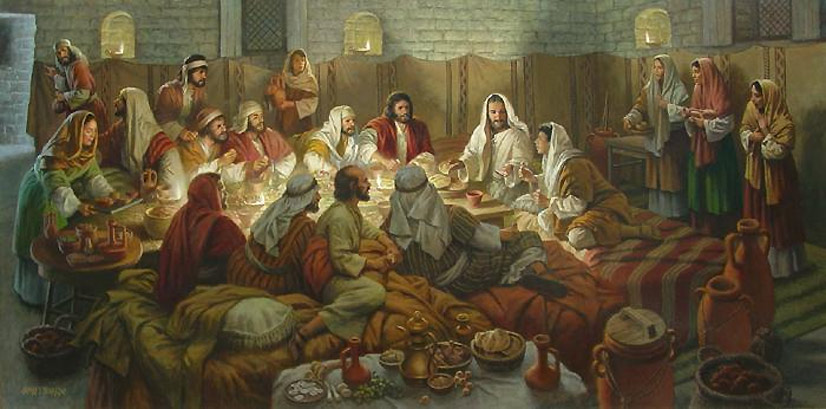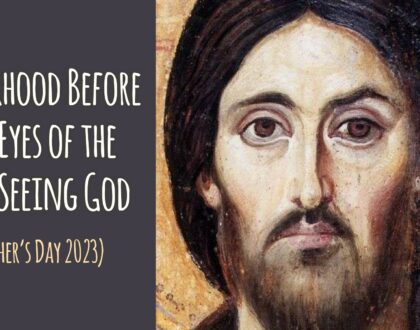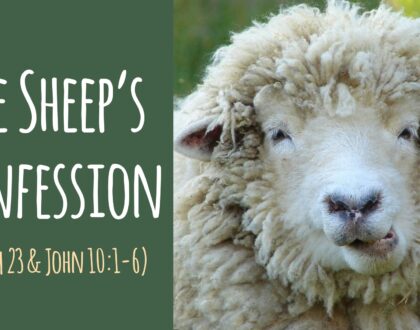A Sacred Sacrifice of Fellowship

by Steve Bacon
“And all who believed were together and had all things in common. And they were selling their possessions and belongings and distributing the proceeds to all, as any had need.” (Acts 2:44,45)
To the modern American Christian, the notion of communal living might seem radical and unnecessary, practiced only by cultic movements such as, the Peoples Temple in the mid to late 1970’s under the leadership of Jim Jones; or, the Branch Davidians led by David Koresh in the early 90’s. However, Christians living under constant threat of persecution in over 80 countries worldwide have experienced their churches and homes burned, jobs and income lost and families disowning them. For these believers, paying a great price for confessing their faith in Christ, is to live out Jesus’s words in Luke 18:28-30;
“And Peter said, “See, we have left our homes and followed you.” And he said to them, “Truly, I say to you, there is no one who has left house or wife or brothers or parents or children, for the sake of the kingdom of God, who will not receive many times more in this time, and in the age to come eternal life.”
Persecuted believers enjoy a quality of fellowship with Christ that is difficult for us to fully appreciate here in America, but it seems to be similar to the fellowship experienced by the converts in the early church seen in Acts 2. It’s a costly fellowship, a “sacred sacrifice” if you will.
While considering this blog, I noticed some correlation between the fellowship in Christ enjoyed by believers in both the modern and early church and the Fellowship Offering instituted by God in the book of Leviticus practiced for centuries by the Jews before the coming of Christ.
Beginning in Leviticus 3:1-12, we learn that the animal being presented for sacrifice could be male or female. It could be taken from either one’s herd or flock which means there were options for the worshiper, possibly to accommodate what was available or what could be afforded. In other words, a characteristic of genuine fellowship is that it is not a burden, but a joy-filled offering. In fact, according to Leviticus 7:16, the Fellowship or Peace offering, as it was called, was unique in that it was freewill in nature unlike the burnt offering, sin, or trespass offerings which were all mandatory. Interesting as well, is how the Levitical “Fellowship” offering was shared between God, the priest and the worshipers themselves. Perhaps this was pointing ahead to the type of fellowship Jesus was praying would characterize His followers; “that they may all be one, just as you, Father, are in me, and I in you, that they also may be in us, so that the world may believe that you have sent me.” (John 17:21).
Back in Leviticus chapter seven, there are three subcategories that made up the Fellowship Sacrifice: Thanksgiving (vv.12-15), vow, and voluntary offerings (vv.16-18). It seems that no matter what the occasion, God provided an avenue with which to fellowship with His people. The same holds true for us today since there are various reasons Christians gather together in fellowship. Sometimes it is to enjoy the companionship of other like-minded believers. At other times, one or more will come alongside a hurting sister or brother to offer encouragement and prayerful support. It may just be that we want to join our voices to others in praise to God because it sounds so much better then when we sing alone!
The Fellowship offering was comprised of both meat and grain cakes and if you read carefully, you will notice that one of the cakes to be offered contained leaven (Lev 7:13). Some argue that while the absence of leaven in ceremonial offerings reminds the worshiper of sin and bondage, the inclusion of leaven here signifies the joy and celebration in genuine fellowship.
Finally, the Levitical instructions stress that the offering itself must be handled with great care so it does not come into contact with anything that is not clean (sanctified) whether it be an object or a person (7:19-21). I believe this emphasizes that what we give to God and share with others is sacred. It may be that in the act of giving so freely, we discover a deeper and more meaningful fellowship.
To Consider:
- What offering do you bring to the fellowship of Jesus Christ?
- Is it given freely out of love and thankfulness, or, are there times when you struggle with weighing the cost?
- Do you take pains to make sure your offering remains sacred and unstained from the world?
Recommended Posts

Reflection Questions: Fatherhood Before the Eyes of the All-Seeing God (Father’s Day 2024)
June 16, 2024
Comments
Comments are closed.



Great blog Pastor Steve, so important that our fellowship is pure and offered with joy and gratitude. This draws my attention to the apostle Paul’s instructions in 2 Cor. 9:6,7, ” The point is this; whoever sows sparingly will also reap sparingly, and whoever sows bountifully will reap bountifully. Each one must give as he has decided in his heart, not reluctantly or under compulsion, for God loves a cheerful giver.” I think how a connection could be made, if we are stingy with using our gifts and placing conditions on who and how we fellowship, we should not expect much of a harvest.
Appreciate the sow/reap quote – very convicting!
Indeed, since we are the”set apart” ones, we would be more of a hindrance to others if our hearts or hands are unclean. Some things we can all offer our brethren: intercession, a word of encouragement, a smile, or a listening ear… invaluably precious to a heart that it hurting or lonely. Thank you Pastor Steve for the obvious effort and study that went into preparing this very challenging and thorough blog.